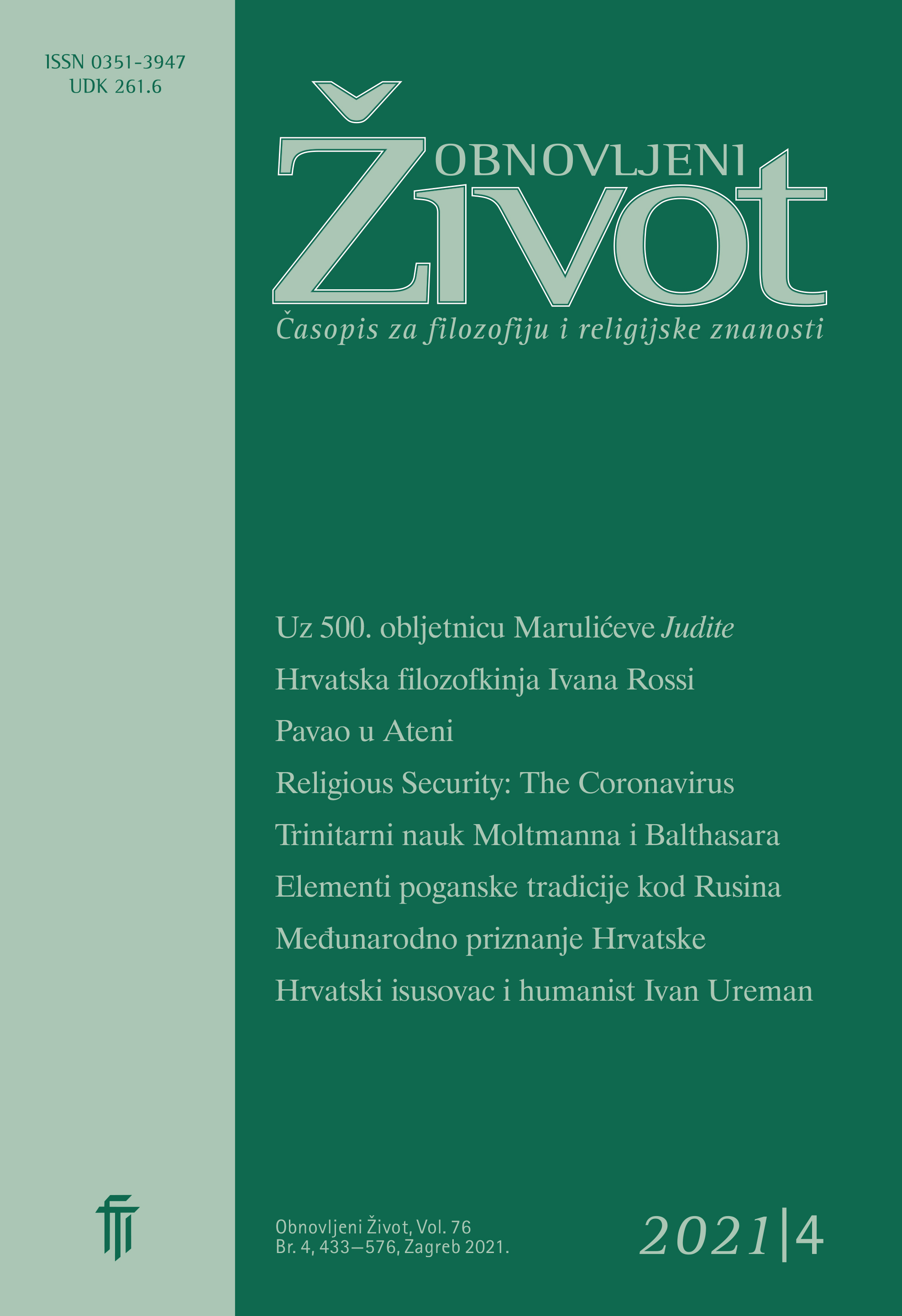Ivan Ureman — Mediator Between Chinese and European Scientific Tradition
On the occasion of the 400th anniversary of his death in the Ignatian Jubilee Year (2021–2022)
Keywords:
Ivan Ureman, Jesuit missionaries, astronomy, geometry, Euclidean axiomatics, magnetic declination, geographical coordinates, Chinese scientific traditionAbstract
Ivan Ureman belongs to the corpus of scholars from the beginnings of modern history who, by studying and using mathematics, marked the beginning of modern science by applying mathematics and mathematical methods in the study of nature. The application of Euclid’s method for testing scientific hypotheses — in which Ureman was an expert — would enable modern science to develop strongly and separate from philosophy, as well as to develop new autonomous fields. While the medieval scientific tradition developed a qualitative approach in researching and describing nature — following the example of Aristotle — and perceived mathematics as interacting with philosophy, in which the logical structure of mathematics was not seen as important, Ureman deviates from this tradition. His mathematical considerations were not connected with philosophy, and he used mathematics not only within its autonomous field but also in the study of astronomical phenomena, as well as in the determination of geographical coordinates and the study of magnetic declination. Confirmation of this can be found in Ureman’s scientific correspondence in which he describes his observations, mathematical data processing and the results of his research. Owing to his competence and activity, Ureman was fully integrated into the work of the famous Jesuit missions in the Far East and their role in the transfer of knowledge from the European tradition to the Chinese tradition and vice versa. He possessed a high level of theoretical and practical knowledge and skills precisely in those areas in which Chinese scholars showed a particular interest: mathematics, astronomy, the calendar, and the determination of geographical coordinates. In astronomy he carried out observations and measurements of phenomena which were the current subject of interest of the scientific community of his time. He achieved notable results in studying lunar eclipses, magnetic declination, and geographical longitude. By working to determine the position of Macao, he made a valuable contribution at a time when some areas of the Far East were still unknown. He was rooted in the scientific endeavours of his era, which spurred the development of new astronomical devices, methods and theories, and enabled major astronomical discoveries that impelled the scientific community of Europe of that time, in which Ureman — from the peripheries of the distant East — could not engage as much as he would have liked, but nevertheless in which he was actively involved thus making a valuable contribution to the transfer of knowledge between the two scientific traditions.
Downloads
Published
Issue
Section
License
Jednom prihvaćeni članak obvezuje autora da ga ne smije objaviti drugdje bez dozvole uredništva, a i tada samo uz bilješku da je objavljen prvi put u Obnovljenom životu. Uredništvo će obavijestiti autora o prihvaćanju ili neprihvaćanju članka za objavljivanje.
Članci objavljeni u časopisu se, uz prikladno navođenje izvora, smiju besplatno koristiti u obrazovne i druge nekomercijalne svrhe.


